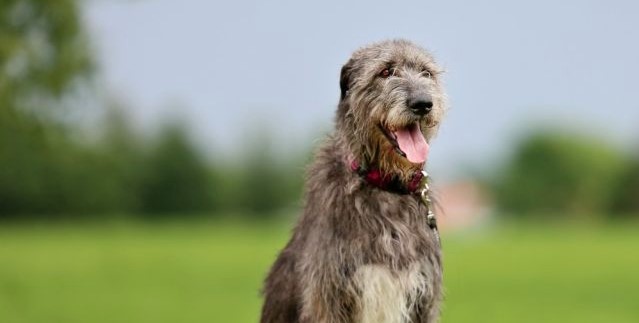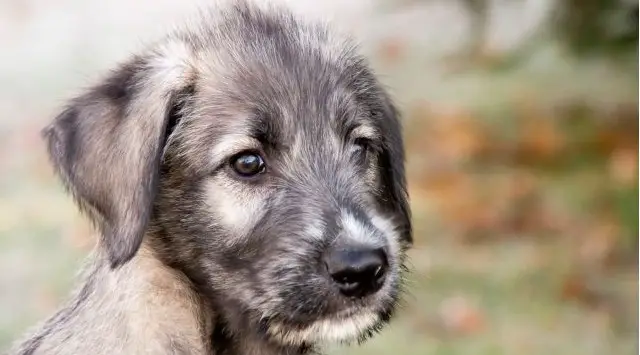The huge dog is mesmerizing at first sight. He wins over with his majestic power, which is interestingly combined with friendliness. To choose the right pet, be sure to study the description of the Irish Wolfhound breed and read the rules for caring for a four-legged friend. The handsome Irish wolfhound is one of the largest dogs in the world. It belongs to the family of wire-haired greyhounds. Despite its impressive size, the dog has a very calm character, friendly with strangers, and unusually loyal to its owner.
Character
The pet always causes some concern with its size. But despite its impressive size, the wolfhound is very balanced, restrained, and friendly. This “whopper” is a companion that subtly senses the mood of the owner. The good-natured nature of the Irish wolfhound makes it easy for the giant dog to befriend children and small pets. A phlegmatic dog will never offend the weak. His connection with the owner is so strong that it defies explanation. There are cases when a strong healthy pet began to get sick after the owner.
They do not give in to provocations from other dogs if there is no direct threat. They are smart enough and able to make decisions on their own. Dogs get along well with other pets, but only with those who are with them from an early age. In other cases, the hunter’s instinct can be triggered.
Bearded giants are very patient with children and will never respond with aggression if a child accidentally hurts them while playing. The dog will simply retreat to the far corner of the room so that it will no longer be disturbed. Despite this, you should not leave them alone with small children.
They may be alone for a while, but most of all they love to be with everyone. At the same time, the dogs never get confused underfoot, but majestically sit next to and carefully watch everyone, waiting for the household to need their help or communication. Irish wolfhounds are considered the quietest dog breed. They give their voice only in exceptional cases, they always behave very delicately, try not to disturb anyone.
These animals can not be humiliated. Dogs are especially sensitive to voice intonation. They can easily be offended by cruelty, rudeness, inattention. They are devoted to their master, to other household members. People who are strangers to them will only be attacked if they pose a real danger. In other cases, the Irish have no aggression towards a person at all.
Care
The main difficulty in caring for dogs of this breed is the need for almost daily combing of the coat since otherwise the dog will have a very unkempt appearance. Due to the short pile, these animals do not form tangles, they also do not need a haircut. For combing, use hard brushes and combs, and special knives for trimming.
It is necessary to bathe the Irish wolfhound only 1-2 times a year, or in case of severe fur pollution after a walk in bad weather. Dry cleaning is acceptable, but it is best not to use conditioners, as they will soften the coat and impair its protective functions. The paws of the animal should be washed after each walk. Hair between the toes is regularly removed to prevent clumping. In winter, the paw pads are lubricated with a fat cream or vegetable oil.
The claws of the animal must be trimmed once a month with a special nail clipper for large breeds of dogs. If you do not monitor the length and condition of the claws, then the pet will experience discomfort during movement.
The animal’s ears and teeth should be checked once a week. Ear wax and dust can be removed with a soft, damp cloth or cotton pad. The teeth are brushed weekly with a special paste, and it is advisable to use chewing bones to remove plaque. The eyes also need to be rinsed every 5-7 days. The presence of suppuration or excessive lacrimation is a reason for an urgent appeal to the veterinarian. Irish Wolfhound needs to be taught all procedures from an early age.
Pros
- affectionate character;
- beautiful, toned appearance;
- developed hunting abilities;
- non-aggressive;
- is very attached to the family;
- does not require complex care;
- does not provoke allergies in a person

Cons
- huge dimensions;
- difficulties in keeping in an apartment;
- eating a lot of food;
- the need for daily long walks, jogging

